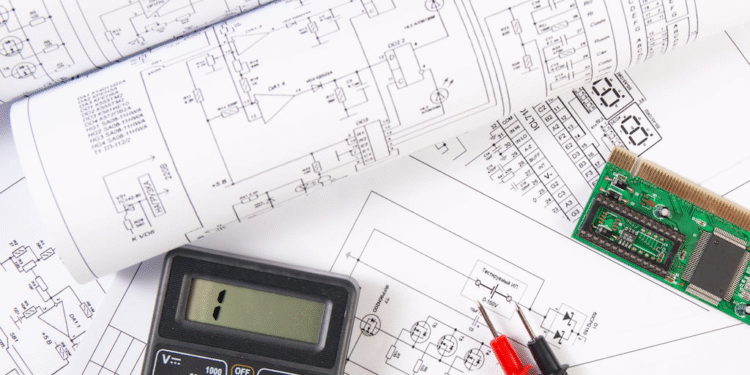Embarking on a degree is a significant choice, serving as the foundation of one’s professional life. Among the array of academic disciplines, engineering remains a firm favourite for its blend of intellectual challenge and practical application. The pursuit of a bachelors of engineering bestows upon students a passport to a world of innovation, allowing them to make tangible contributions to society. This article aims to navigate prospective students on the path to acquiring a Bachelor of Engineering degree.
Understanding the Engineering Degree Structure
An engineering degree is meticulously structured, incorporating an array of subjects ranging from the theoretical aspects of mathematics and physics to the practicalities of design and project management. The journey for an aspiring engineer begins with a strong foundation in core scientific principles, advancing to more specialised topics as one progresses through the programme.
The Importance of Accreditation
One crucial factor to consider is the accreditation of the engineering programme. Accreditation ensures that the educational standard meets the professional requirements and is recognised by employers and other institutions worldwide. This badge of quality guarantees that graduates will be eligible to pursue professional certification and licensure.
Specialisations within Engineering
A key decision for students is the selection of a specialisation, or major, which will hone their skills in a particular field of engineering. Options may include civil, mechanical, electrical, chemical, and many other branches of engineering. It is essential to consider personal interests and career aspirations when making this decision.
Admission Requirements and Prerequisites
The prerequisites for a bachelors of engineering typically include a strong grounding in mathematics and sciences at the secondary education level. Universities may also require proficiency in English and have specific grade thresholds. Prospective students must carefully review these requirements to ensure they are prepared both academically and linguistically.
Tackling the Coursework and Projects
Engineering coursework can be demanding, with a significant emphasis on problem-solving, critical thinking, and creativity. Students are often required to complete practical projects, which serve as a testament to their understanding and ability to apply theoretical knowledge. Collaborative projects also help develop vital teamwork and communication skills crucial in the professional engineering realm.
Integrating Work Experience
Many engineering programmes offer industrial placements or internships, which provide invaluable hands-on experience. These opportunities allow students to immerse themselves in the professional environment, tackling real-world problems and networking with industry professionals.
Balancing Technical and Soft Skills
While technical proficiency is paramount, successful engineers also possess strong soft skills. Communication, teamwork, and project management are just as essential as technical knowledge. Students should seize opportunities to develop these skills throughout their academic journey.
International Opportunities in Engineering Education
Engineering is a global profession, and studying abroad or at an institution with a diverse international presence can offer a broader perspective. Exposure to differing approaches and technologies, as well as the chance to develop a global network, can significantly enhance a graduate’s employability.
Funding Your Engineering Degree
Engineering degrees can be a financial challenge, but universities and external bodies offer scholarships, bursaries, and financial aid to eligible students. Researching and applying for these opportunities can alleviate financial constraints, allowing students to concentrate on their studies.
Utilising Academic Support Services
Universities also provide a wealth of support services, including tutoring, mentorship programmes, and academic counsellors who can assist students in navigating their coursework and career decisions.
Connecting with Professional Bodies
Engagement with professional engineering bodies can enrich one’s education and career prospects. These organisations often furnish resources, host events, and provide networking opportunities that are invaluable to students and young professionals.
Preparing for the Professional World
As students near the completion of their degree, attention must shift to the transition into the professional realm. Crafting a compelling CV, gaining interview skills, and researching potential employers become pivotal at this stage.
Embracing Lifelong Learning
The field of engineering is ever-evolving. A bachelors of engineering is just the beginning, and graduates must remain committed to lifelong learning to maintain expertise in their field and stay abreast with technological advancements.
Conclusion
The journey to a fulfilling career in engineering begins with a robust foundation garnered through a Bachelor of Engineering degree. It requires dedication, hard work, and a forward-thinking mindset. By choosing the right programme, specialising according to one’s talents and interests, and engaging fully with all the facets of the academic experience, students can pave a path to a rewarding and impactful career. The world awaits the ingenuity and problem-solving abilities that engineering graduates bring to bear on the most pressing challenges of our time.
Further Reading
For individuals keen on exploring the opportunities and charting a course in the field of engineering, obtaining a bachelors of engineering from a reputable institution is a critical step. Investigating various degree programmes, understanding the nuances of the field, and aligning one’s passion with the demands of the profession are essential determinants in navigating the future of aspiring engineers.













